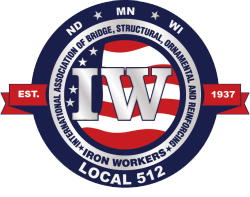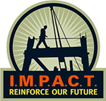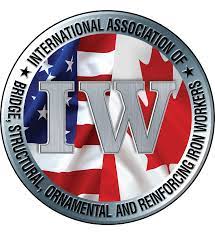Ironworkers Local 512 Referral to Work Policy
The title of this policy makes it sound a lot more complicated than it is. The Referral to Work Policy lays out in text how Ironworkers Local 512 dispatches—or “refers”—its members out to work on projects with the Union’s signatory contractors (the construction companies the Union has labor agreements with). The policy exists to make sure the Union has a consistent process to keeping its members working, and it sets the rules for how the out-of-work lists operate, what the expectations of the members are, and how the Union’s business agents handle the out-of-work list and the Union’s members.
The Referral to Work Policy is important because it makes sure that the process that Union members are dispatched to work is fair for everyone. It holds the members and dispatching agents accountable and protects the Union from potential lawsuits. It also gives the contractors abilities to “direct call” members they know are looking for work as well as request that a member who is dispatched have a certain certification or skill.
The first, and most important, thing Ironworkers Local 512 members need to do is make sure that they are registered on the Regional Referral List for their region. Next, make sure the Union has a current telephone number, because that’s how the Union will contact you for work. If the number the Union has for you is inaccurate, you’ll be removed from the referral list and have to re-register. You can get registered (or re-registered) on the Regional Referral List by contacting the Union in person or by telephone. Finally, make sure the Union knows the details about your skills and training. That way, when an employer requests Ironworkers who possess certain skills, abilities, or certifications, the dispatchers will offer referrals to applicants who would fulfill that request first. This might be requests for rebar, structural, or ornamental skills, or certifications such as welding, post-tensioning, or MSHA.
When a member is registered on the referral list, they are telling the Union that they are available to work right away, with no delay. You don’t have to take every referral you get, unless of course you are an apprentice, apprentices cannot turn down a referral, but if a Journeyman turns down three jobs that you’re qualified for during a 30-day period, you’ll be moved to the bottom of the list. The person who makes these phone calls is called the dispatcher. If you don’t answer the phone or return calls in response to three attempts by the dispatchers to call you, you’ll be removed from the referral list, and will have to re-register if you want to get back on the list.
Members within each region (A, B, and C) are sorted into three groups on the referral list. Group I is Journeyman Ironworkers, Group II is apprentices, and Group III is everybody else, like temporary employees, permit hands, and pre-apprentices, travelers, retirees, and other applicants. If a member is qualified for more than one group, they are sorted into the highest priority group. They can also request to be placed in Group III even if they are eligible for Group I or II, and then can request to be returned to the group they are eligible for (but they’ll be at the bottom of the list). The groups matter because dispatchers usually start with members in Group I. When they’ve reached the end of the region’s Group I list, they move on to Group II. When they reach the end of the Group II list, they start with Group I members for other regions, and then Group II applicants for other regions. When the Group I and II lists from all regions are exhausted, dispatchers move on to the Group III list.
There are times when dispatchers don’t follow the process above, but those are exceptions that are laid out in the Referral to Work Policy. One example is a “direct call,” which is when an employer requests an applicant by name. These have to meet certain requirements that are explained in the policy. Employers also sometimes need Ironworkers who have certain skills or certificates, or to meet workforce diversity goals. In those cases, the dispatchers start with applicants that will meet those requests.
One important note: applicants who are physically in the Union office at dispatching times have the first option to accept or decline a call for work in that region. This still follows the normal procedure, working down the Group I and II lists, but being in the Union office gets you first crack at work. The job calls start at 7:30 a.m., followed by calls hourly at 8:00 a.m., 9:00 a.m., and 10:00 a.m. Jobs read off at these four times but not taken can be given out at any time until 10:00 a.m. If calls are still not taken after 10:00 a.m., the dispatchers start working the phones, going down the lists.
The policy also lays out how to handle referrals to work in other trades or jurisdictions, as well as retiree referrals. It explains the penalties for violating the policy and the process to submit a complaint or file an appeal. The whole thing is only 20 pages long, and the policy itself is only 13 pages, so it doesn’t take long to read. But it’s worth doing if you want to understand how the Union makes sure its members are treated fairly, every time.








